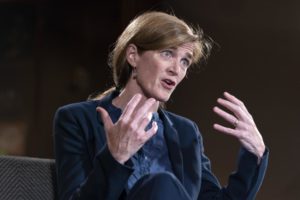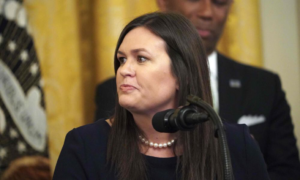The United Nations Women Country Representative to Nigeria and the Economic Community of West African States, Ms Beatrice Eyong, says Nigeria’s political atmosphere indicates the country is not ready to have a female president.
According to her, only seven per cent of Nigerian women are in the nation’s parliament, leaving a whopping 93 per cent for men.
Speaking with our correspondent in an interview in Lagos, Eyong said, “What tells us exactly what the situation is are the statistics that are there. The statistics show that women’s participation in politics is low in Nigeria.
“The recent study carried out by ECOWAS comparing with other countries shows that the number of women in political participation and leadership are low. This is because we have only seven per cent of women participating in the parliament – the Senate and House of Representatives – and in the government in general. When we look at the states, it looks better than that at the federal level.”
Asked about the reason for the low participation, she said the problem was age-long, noting that early marriage was a major factor that inhibits women’s participation in politics.
“It is not something that happened today. When girls drop out of school because they want to go for early marriage, they wouldn’t have the time again for their education.
“If you are not educated, it is very difficult for you to rise to parliament. How do you make it over there and what will you be saying to people? Often times than not when these girls drop out of school for marriage, this ends their education.
“In addition to that, when they drop out of school, these marriages lead to early pregnancies. The body of the girl is not yet ready to have a child but because she went to early marriage and started sex, she is forced to have a baby.
“During delivery, there are a lot of health challenges that occur. So, you see that when this girl is taken out of school, it is like putting poverty on that girl.
“The Nigerian systems have not put in place structures that recover these girls. Can they not be given another chance? For us at UN Women, we have what we call second-chance education.
“This is for girls who may have dropped out of school. Education is something that we are supposed to allow; both boys and girls must have the full opportunities to go to school. So, that basis of education is an issue,” Eyong further noted.
Still speaking, she stated that women in politics were viewed by society as people with loose morals.




